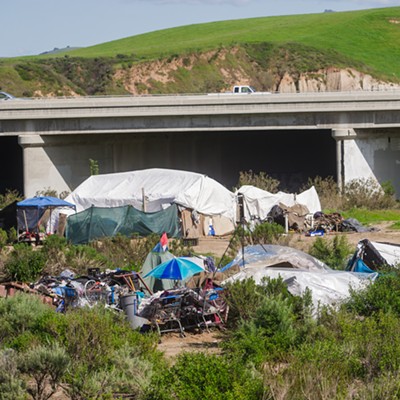• The Transportation and Infrastructure Committee advanced legislation that prevents Coast Guard Academy cadets from punishment when reporting an incident of sexual assault, and language in that legislation was proposed last year by U.S. Rep. Salud Carbajal (D-Santa Barbara), according to a March 22 statement from Carbajal’s office. The bill advanced by the committee also includes language proposed by ranking member Carbajal and Subcommittee Chair Daniel Webster (R-Florida) to strengthen sexual assault and harassment protections for members of the Coast Guard. The fiscal year 2021 National Defense Authorization Act required the Department of Defense to implement Safe-to-Report policy for collateral misconduct involving a midshipman or cadet who is the victim of an alleged sexual assault at Department of Defense Military Academies, which does not include the Coast Guard Academies. In August 2023, Carbajal introduced legislation to ensure that the Coast Guard Academy implements an identical policy to prevent cadets from being punished for minor offenses under the Uniform Code of Military Justice when reporting an incident of sexual assault. “Every single day, the Coast Guard goes to work on the broad range of missions that keep our nation and its citizens safe. They mind the safety of our seas and the security of our waters, protect our seafarers and our beachgoers, and reinforce our national defense,” Carbajal said in the statement. “As a veteran and the top Democrat on the Coast Guard and Maritime Transportation Subcommittee, I’m proud to build on our previous actions taken to protect our servicemembers doing these critical missions by advancing bipartisan legislation aimed at holding the Coast Guard accountable for reforms needed to eliminate sexual assault and sexual harassments from its ranks.”
• U.S. Sen. Alex Padilla (D-California), alongside Senate and U.S. House colleagues, announced bipartisan, bicameral legislation to facilitate cybersecurity and telecommunications upgrades for the 17 oceanographic vessels in the U.S. Academic Research Fleet, according to a March 13 statement from Padilla’s office. The Accelerating Networking, Cyberinfrastructure, and Hardware for Oceanic Research (ANCHOR) Act would require the National Science Foundation (NSF) to plan improvements for these critical oceanographic research vessels. The fleet includes three vessels in California, which recently discovered extensive World War II-era munitions on the seafloor at the San Pedro DDT dumpsite. These ships and their submersibles play a central role in important priorities such as exploring our ocean, studying climate change, and improving national security, according to the statement. First commissioned decades ago, these ships need new infrastructure and maintenance, Padilla’s office said, especially with naval cyberattacks from Russia and China on the rise. “The U.S. Academic Research Fleet is a global leader in performing groundbreaking oceanographic research, which is critical for navigating rising climate threats,” Padilla said in the statement. “But with increasing cyberattacks on these vessels, we urgently need to upgrade crucial cybersecurity and telecommunications infrastructure. This cost-effective, bipartisan solution will lead to better science and better conditions for our crew members while saving money by allowing vessel repairs in real time.”
• Gov. Gavin Newsom announced that Big Three automaker Stellantis—whose brands include Chrysler, Dodge, Jeep, Ram, and more—has agreed to a series of initiatives that will reduce pollution and ramp up clean vehicles on the roads, according to a March 19 statement from Newsom’s office. “This partnership with Stellantis will help California achieve our ambitious goals to drastically cut pollution and get more clean cars on the roads,” Newsom said in the statement. “The biggest and most influential companies in the world understand that this is how we can fight climate change together, and it’s another example of the private sector joining California to help millions of people get into clean vehicles.” Under the agreement, Stellantis will avoid up to 12 million additional metric tons of greenhouse gas emissions through the 2026 model year—equivalent to the emissions from more than 2.3 million vehicles driven in an entire year. Stellantis will also comply with California’s zero-emissions light-duty vehicle sales requirements through 2030 and invest $4 million to deploy public charging infrastructure in California’s rural areas and in federal, state, and county parks plus an additional $6 million in other states that have chosen to adopt California’s greenhouse gas emission standards.









